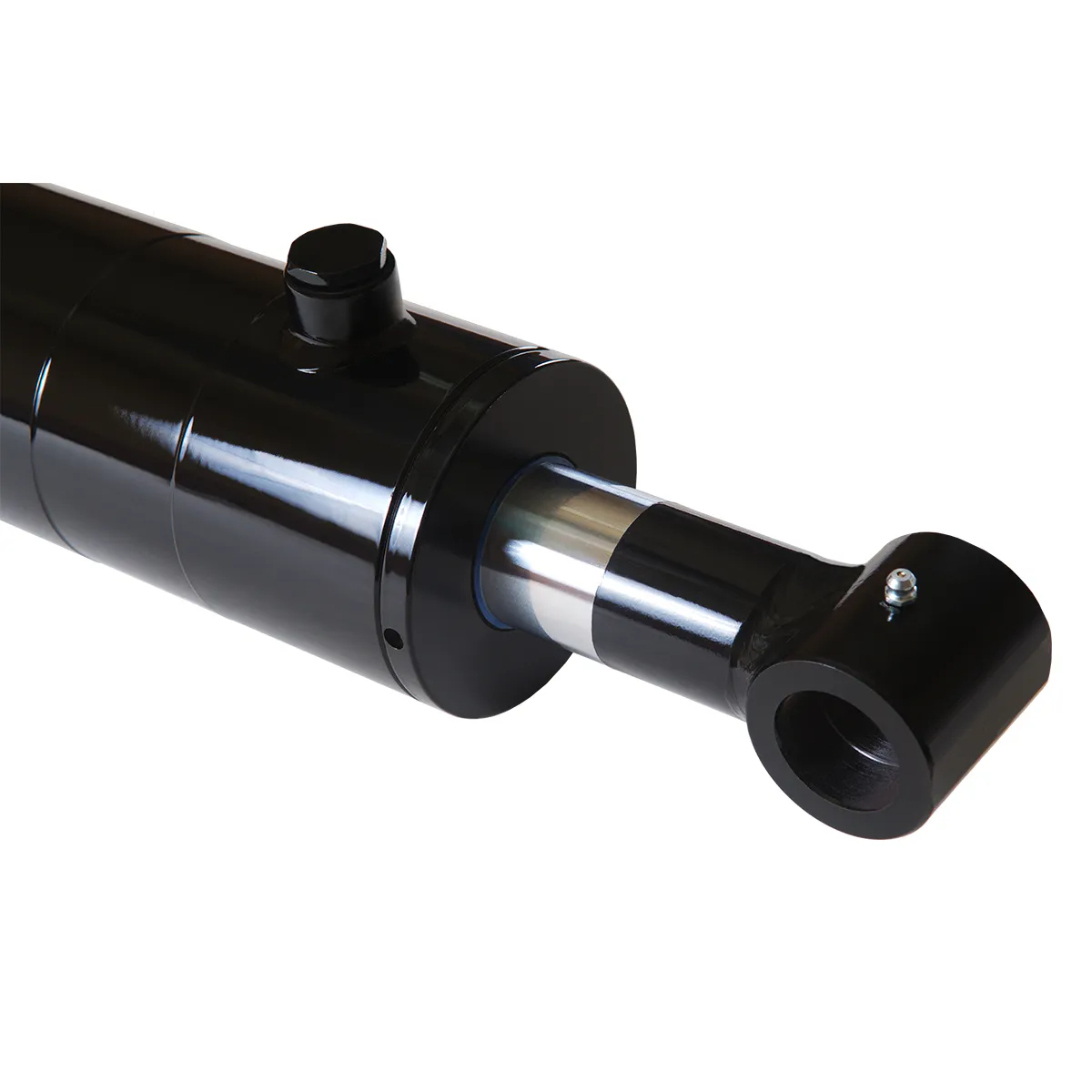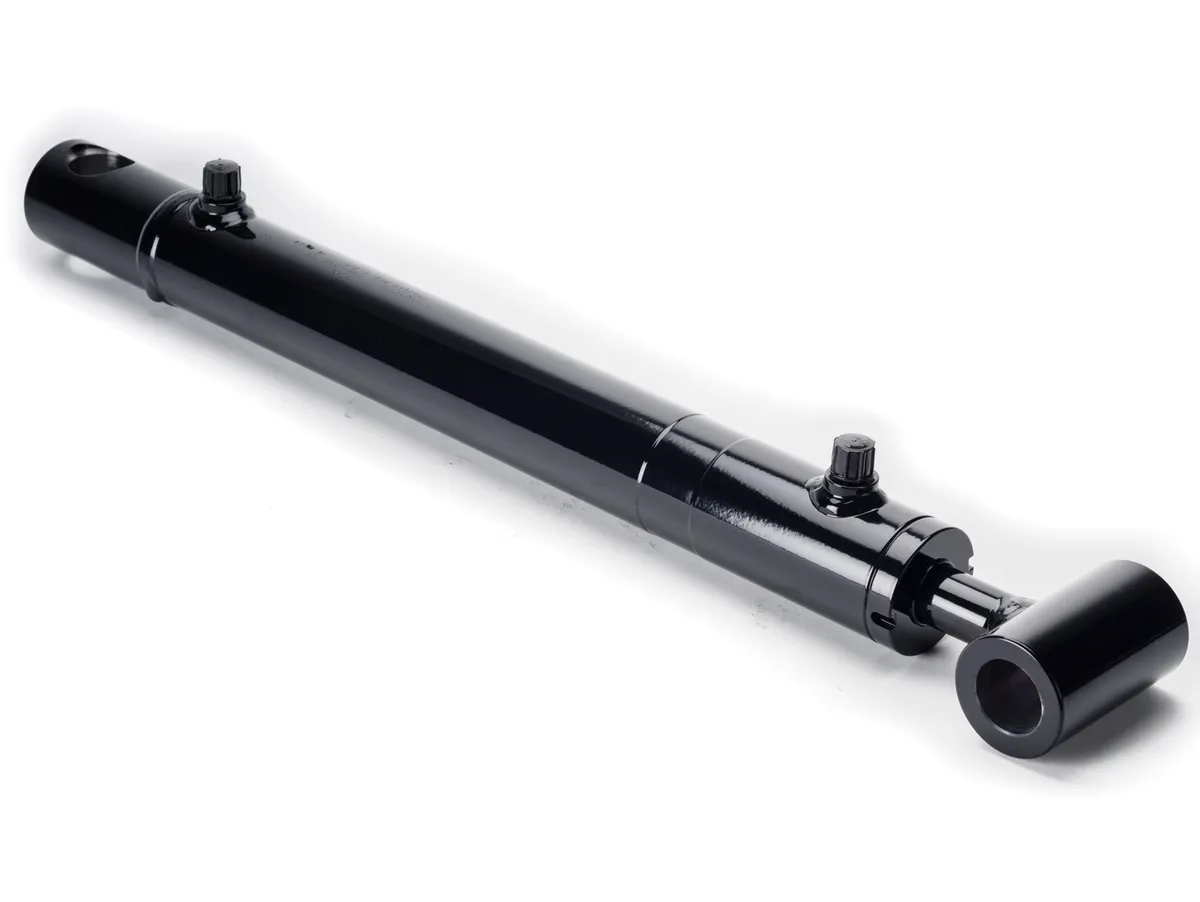The Importance of Industrial Hydraulic Cylinders in the Market
Understanding Hydraulic Cylinder in the Industrial Environment
Industrial hydraulic cylinders play a crucial role in various industrial applications, providing the necessary force to move heavy loads and operate machinery efficiently. These cylinders are vital components in hydraulic systems, converting fluid power into mechanical force.
Key Components and Structure
A hydraulic cylinder consists of a barrel, piston, piston rod, and seals. The barrel houses the piston, which divides the chamber into two areas: the rod side and the cap side. The piston rod connects the piston to the end cap and extends and retracts to move the load.
Principle of Hydraulic Cylinder Operation
Hydraulic cylinders operate based on Pascal’s Law, which states that pressure applied to a confined fluid is transmitted undiminished in every direction. When hydraulic fluid is pumped into the cylinder, it exerts pressure on the piston, causing it to move and generate force.
Control Cylinder Operation Overview
Control systems regulate the flow and pressure of hydraulic fluid to control the movement and speed of the cylinder. Proportional valves, directional control valves, and pressure relief valves are commonly used to ensure precise control over the cylinder’s operation.

Types of Hydraulic Cylinders
There are several types of hydraulic cylinders used in industrial applications, each designed for specific tasks and operating conditions.
Single Acting Cylinder
A single-acting cylinder operates in one direction, using hydraulic pressure to extend the piston rod. It relies on an external force, such as a spring or gravity, to retract the rod once the pressure is released.
Double Acting Cylinder
A double-acting cylinder can extend and retract using hydraulic pressure in both directions. This type of cylinder is commonly used in applications where precise control over both extension and retraction is required.
Telescopic Cylinder
Telescopic cylinders consist of multiple nested stages that extend and retract to provide long strokes in a compact space. They are used in applications where a long stroke is required but space is limited.
Differential Cylinder
A differential cylinder has a larger effective area on one side of the piston than the other, allowing for different forces to be generated in each direction. This type of cylinder is used in applications where a greater force is needed in one direction.
Advantages of Industrial Hydraulic Cylinders
Industrial hydraulic cylinders offer numerous advantages that make them indispensable in various industries.
High Force Output
Hydraulic cylinders can generate significant force, making them ideal for lifting heavy loads and performing demanding tasks.
Precision Control
Hydraulic systems allow for precise control over the speed and position of the cylinder, ensuring accurate and efficient operation.
Compact Design
Hydraulic cylinders have a compact design, making them suitable for applications where space is limited but high force output is required.
Reliability and Durability
Hydraulic cylinders are known for their reliability and durability, providing long-lasting performance even in harsh industrial environments.
Versatility
Hydraulic cylinders can be customized to suit specific applications, making them versatile and adaptable to a wide range of industrial tasks.
Industries Using Hydraulic Cylinders
Industrial hydraulic cylinders find applications in a wide range of industries, including manufacturing, construction, mining, agriculture, and more.
Manufacturing Industry
In the manufacturing sector, hydraulic cylinders are used in machinery, robotics, and automation systems to perform precise movements and handle heavy loads efficiently.
Construction Industry
Construction equipment such as cranes, excavators, and bulldozers rely on hydraulic cylinders to lift, push, and move materials on construction sites with ease.
Mining Industry
In mining operations, hydraulic cylinders power equipment such as rock drills, loaders, and dump trucks, enabling efficient extraction and transportation of minerals.
Agricultural Industry
Agricultural machinery such as tractors, harvesters, and irrigation systems use hydraulic cylinders to perform various tasks, from plowing fields to harvesting crops.
Other Industrial Sectors
Hydraulic cylinders are also used in industries such as transportation, aerospace, and marine applications, where precise control and high force output are essential for operation.
Selecting the Right Industrial Hydraulic Cylinder
Choosing the correct hydraulic cylinder for a specific application requires careful consideration of several factors to ensure optimal performance and efficiency.
Load Capacity
Determine the maximum force required to move the load and select a hydraulic cylinder with a suitable load capacity to handle the task effectively.
Stroke Length
Consider the required stroke length to move the load through its full range of motion and choose a cylinder with the appropriate stroke length for the application.
Bore Size
The bore size of the cylinder affects the force output and speed of operation, so select a cylinder with the right bore size to meet the performance requirements of the application.
Maintenance and Care of Hydraulic Cylinders
Regular maintenance and proper care are essential to ensure the long-term performance and service life of industrial hydraulic cylinders.
Inspection
Periodically inspect the cylinder for leaks, damage, or wear and tear to identify potential issues and address them before they affect the cylinder’s operation.
Lubrication
Apply the appropriate lubricant to the cylinder components to reduce friction and wear, ensuring smooth operation and extending the service life of the cylinder.
Cleaning
Keep the cylinder and its surroundings clean to prevent contaminants from entering the system and causing damage, maintaining optimal performance and reliability.
Installation of Industrial Hydraulic Cylinders
Proper installation of hydraulic cylinders is crucial for ensuring safe and efficient operation in industrial applications.
Mounting
Securely mount the cylinder to the equipment or machinery using proper mounting brackets and fasteners to prevent misalignment or damage during operation.
Alignment
Align the cylinder with the load and ensure that the piston rod moves in a straight path to prevent binding or uneven wear on the cylinder components.
Testing
Perform a thorough test of the cylinder’s operation after installation to verify that it functions correctly and meets the performance requirements of the application.
Maintenance Tasks for Hydraulic Cylinders
Cleaning
Regularly clean the cylinder and its components to remove dirt, debris, and contaminants that can affect performance and cause premature wear.

Lubrication
Apply the recommended lubricant to the cylinder seals, piston rod, and other moving parts to reduce friction and ensure smooth operation.
Checking Wear
Inspect the cylinder for signs of wear, such as leaks, dents, or scratches, and replace worn components to prevent system failure and maintain optimal performance.
Fault Diagnosis and Common Problems
Identifying and addressing common issues with hydraulic cylinders is essential for maintaining reliable operation and preventing costly downtime.
Leakage
Leaks in the hydraulic system can result from damaged seals, loose fittings, or worn components, causing a loss of fluid and reduced system efficiency.
Slow or Erratic Operation
Issues with the control valves, fluid contamination, or air in the system can cause slow or erratic cylinder operation, affecting performance and productivity.
Overheating
Excessive heat in the hydraulic system can lead to fluid breakdown, component damage, and system failure, necessitating proper cooling and maintenance to prevent overheating.
Preventive Measures for Optimal Performance
Implementing preventive measures can help minimize potential problems and optimize the performance of industrial hydraulic cylinders in various applications.
Regular Maintenance
Establish a routine maintenance schedule to inspect, lubricate, and clean the hydraulic system, ensuring proper function and extending the service life of the cylinders.
Training and Education
Provide training for operators and maintenance personnel on proper cylinder operation, maintenance procedures, and troubleshooting techniques to prevent issues and ensure efficient performance.
Upgrading and Modernization
Consider upgrading outdated hydraulic systems with newer technologies and components to improve efficiency, reliability, and safety in industrial operations.
Choosing the Right Industrial Hydraulic Cylinder
Selecting the appropriate hydraulic cylinder for a specific application requires careful consideration of various factors to ensure optimal performance and efficiency.
Performance Requirements
Assess the specific needs of the application, such as load capacity, speed, and precision control, to determine the performance requirements for selecting the right hydraulic cylinder.
Environmental Conditions
Consider the operating environment, including temperature, humidity, and exposure to contaminants, to choose a cylinder that can withstand the conditions and maintain reliable performance.
Budget and Cost
Evaluate the initial investment and long-term costs associated with the hydraulic cylinder, including maintenance, repairs, and replacement, to determine the most cost-effective solution for the application.
Long-Tail Keywords for Industrial Hydraulic Cylinders
Long-tail keywords related to industrial hydraulic cylinders can help improve search engine optimization and target specific audiences looking for relevant information.
Hydraulic Cylinder Replacement Services
Offering hydraulic cylinder replacement services for industrial applications to ensure efficient operation and minimize downtime in case of cylinder failure.
Custom Hydraulic Cylinder Manufacturing
Providing customized hydraulic cylinder manufacturing services to meet unique specifications and performance requirements for diverse industrial applications.
Wholesale Distribution of Hydraulic Cylinders
Supplying a wide range of hydraulic cylinders through wholesale distribution channels to meet the demand of industrial customers and support various applications.
Our Company: Leading Hydraulic Cylinder Manufacturer
We are a reputable hydraulic cylinder replacement manufacturer with a comprehensive product line and a strong presence in the domestic and international markets.
Professional Services
Our company offers professional services for hydraulic cylinder design, manufacturing, and maintenance, ensuring superior quality and performance for industrial applications.
International Certification
We hold international certifications and adhere to industry standards to guarantee the reliability, safety, and compliance of our hydraulic cylinders for diverse industrial sectors.
Customized Solutions
Our company provides customized solutions to meet the specific requirements of customers, offering tailored designs and configurations for optimal performance in various applications.
Advanced Production Equipment
We utilize advanced production equipment and technology to manufacture high-quality hydraulic cylinders with precision engineering and superior craftsmanship.
Exceptional After-Sales Service
Customer satisfaction is our top priority, and we offer exceptional after-sales service, technical support, and maintenance solutions to ensure the long-term performance of our hydraulic cylinders.
